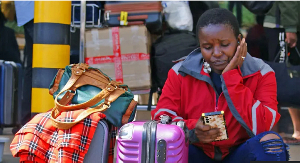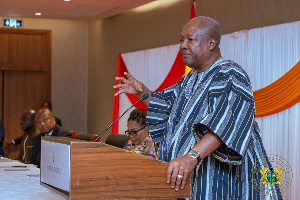The erstwhile John Mahama administration was able to reduce teacher absenteeism from 27 percent to seven percent by the time it was exciting office in 2016, former Education Minister Prof Jane Naana Opoku Agyemang has said.
Speaking to Kwabena Bobie Ansah on The Citizen Show on Saturday, 13 June 2020, the former Vice-Chancellor of the University of Cape Coast, said the Mahama administration confronted teacher absenteeism head-on when it came to light that it was one of the major factors that mitigated against the strong academic performance of pupils and students.
She said even though Ghanaian children are smart, a few hurdles frustrated their progress, thus, the decision by the Mahama administration to tackles those issues.
“I’m telling you Ghanaian children are brilliant. And I’m also telling you that Ghanaian parents don’t care what they put into their children’s education whether they are rich or poor”, Prof Opoku Agyemang told Bobie Ansah, adding: “Some parents even go to the extent of selling their personal effects just to take care of their children in school”.
She noted that: “If you are able to identify all the peculiar problems confronting education in various communities and settings and fix them, the children’s performance will improve”.
“We found, for example, that teacher absenteeism was as high as 27 per cent. That study was done by UNICEF. The Mahama administration came to meet it. I panicked when I saw the 27 per cent because I was coming from the university and, so, I wondered how I would’ve coped with 27 per cent of my lecturers absenting themselves”, she said.
“We got so many respondents through that particular research about why the teachers weren’t going to school. One thing that stood out was the issue of supervision. It was weak. There were schools that the heads told us that no supervisor had ever been there”, she recalled.
“By the time we were leaving office, we were able to bring teacher absenteeism down from 27 per cent to seven per cent by 2016”.
General News of Saturday, 13 June 2020
Source: classfmonline.com













